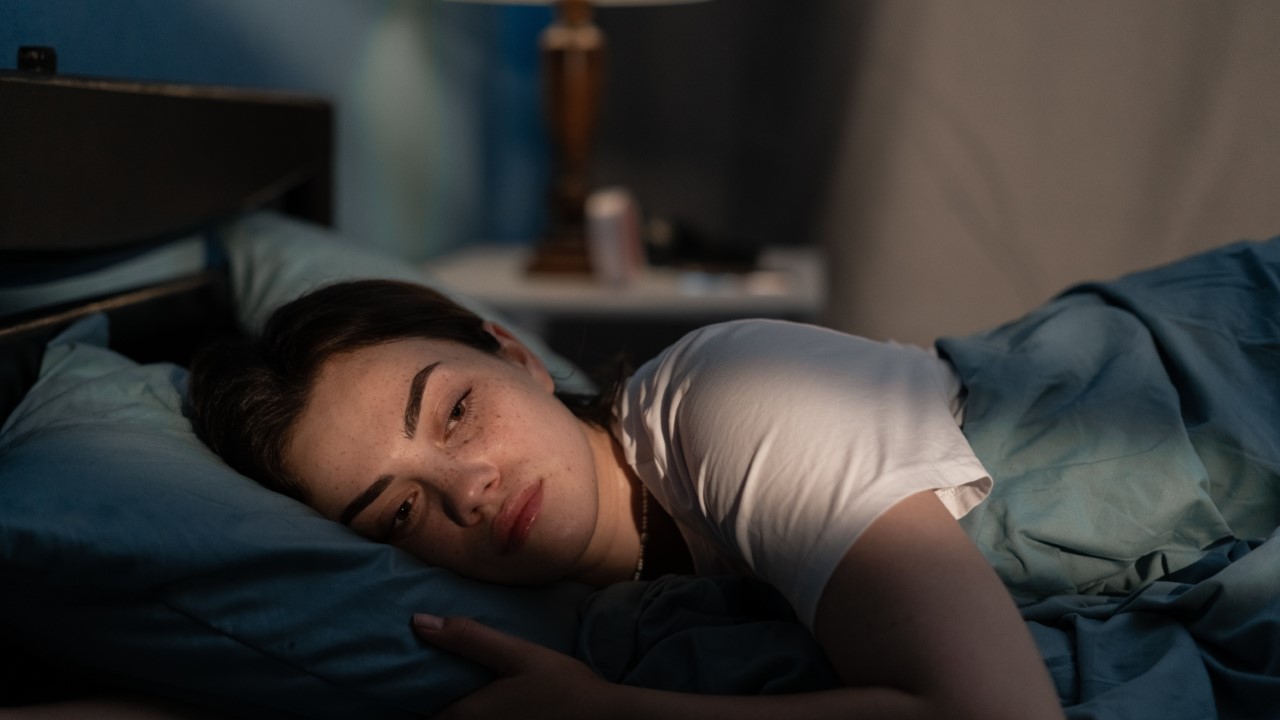In recent times, we’ve all felt the weight of ongoing global challenges—from relentless natural disasters to the stresses of a worldwide pandemic and the unpredictability of global conflicts. These events strain not just our way of life but also our mental well-being.
It’s crucial to remember that while stocking up on essentials and planning for physical safety during emergencies, our mental health requires just as much attention and care.
Take a look at these essential mental health tips that empower you to handle crises with strength and resilience. By integrating these practices into your routine, you’ll boost your mental fortitude and enhance your capacity to thrive amid chaos.
#1. Prioritize Self-Care

Self-care is your secret weapon in maintaining mental balance, especially during a crisis. Make sure to get enough sleep, eat nutritious meals, stay hydrated, and engage in activities that you find relaxing and enjoyable. Whether it’s exercising, meditating, or simply spending time outdoors, these actions are crucial in keeping you physically and emotionally grounded. When you’re well-rested and nourished, you’re better equipped to handle life’s challenges.
#2. Accept That A Crisis Can Happen

Uncertainty is a part of life, and crises will happen, but instead of trying to dodge or deny them, embrace the fact that they’re a natural part of your journey.
By acknowledging this reality and knowing that you have the strength to conquer any crisis, you can reduce anxiety and build resilience.
#3. Get Enough Sleep

Sleeping is crucial for our physical and mental well-being, especially during uncertain times.
Prioritize 7-8 hours of sleep each night. It rejuvenates, boosts vitality, and improves stress management and decision-making.
#4. Acknowledge Your Fears

Acknowledging and embracing fears during uncertain times is so crucial.
It’s normal to feel anxious or overwhelmed in a crisis, but take a moment to sit with your fears, understand where they come from, and find effective ways to process and manage them.
Remember, feeling scared is natural, but don’t let fear control your actions. Instead, let it fuel you towards positive change and proactive steps forward.
#5. Believe In You

It’s crucial to believe in yourself during uncertain times, even when you doubt your abilities or feel inadequate in facing challenges.
Reflect on past successes and let them motivate you to keep pushing forward, knowing that you are strong and resilient, capable of weathering any storm.
#6. Stay Prepared

One of the best ways to feel in control during a crisis is to be prepared by having emergency supplies, a plan for evacuation or sheltering in place, and important documents readily available.
Staying prepared will not only give you peace of mind but also make it easier to handle any unexpected situations that may arise.
#7. Don’t Be In Denial

Failing to acknowledge the possibility of a potential crisis hinders your ability to take necessary actions and safeguard yourself and your loved ones.
Denial brings forth feelings of helplessness and hopelessness, while acceptance empowers you to recognize that there are always steps you can take to enhance the situation.
#8. Limit Your News Watching

Staying in the know is essential, but immersing ourselves in news all the time can be overwhelming.
Instead, it’s better to stick to a few reliable sources and take breaks when needed. This helps us stay informed while taking care of our mental well-being.
#9. Connect With Your Circle

It’s invaluable to lean on the support of friends and family, so it’s important to maintain those connections to navigate challenging times.
Having a strong support system not only helps reduce stress but also provides comfort during uncertain times.
#10. Ask For Help

Sometimes, life can get overwhelming, and it feels like we can’t handle everything. But it’s okay to ask for help from others.
Whether talking to friends or family, seeking professional counseling, or having a heart-to-heart with someone we trust, reaching out can make a huge difference.
#11. Create A Routine

In times of uncertainty, it’s common to feel overwhelmed and lose track of time.
That’s why establishing a consistent routine can have a profound positive impact on our mental well-being.
A structured daily life empowers us with a sense of control and fosters the stability and consistency we crave.
#12. Accept Change

Change can be scary and uncomfortable, but it’s a natural part of life, while embracing change promotes adaptability and reduces stress.
It is vital to embrace the process of learning and growth, as it can lead to unexpected opportunities and exponential personal development.
#13. Save Money

Financial security is crucial in times of uncertainty, so creating a budget and setting aside money each month for emergencies is a great way to prepare for a crisis.
Having an emergency fund can provide a sense of security and reduce stress during unpredictable times.
#14. Recognize Your Stress Signals

Stress can manifest itself in various ways, such as physical symptoms like headaches or difficulty sleeping, and emotional symptoms like irritability or anxiety.
Knowing your stress triggers and finding healthy coping mechanisms can help you better navigate difficult times.
#15. Find Your Happy Place

Having a spot where you can unwind and find peace during challenging times is crucial.
Whether it’s a park, beach, or just a cozy corner at home, having a space to retreat is important.
It’s also great to do things that bring you joy and help you relax, like reading, cooking, or enjoying a hobby.
#16. Practice Coping Skills

During uncertain times, instead of worrying about the future or dwelling on the past, focusing on the present moment can bring calmness and alleviate anxiety.
Take deep breaths, practice mindfulness techniques such as meditation or yoga, and engage in activities that promote living in the present moment, like taking a nature walk or cooking your favorite meal.
#17. Create A Crisis Survival Kit

Creating a survival kit will help you feel prepared and empowered.
Having this kit easily accessible will give you peace of mind and the confidence to handle unexpected situations.
Ensure your kit has first aid supplies, non-perishable food, water, flashlights, and medications.
#18. Have A Positive Attitude

Your mindset plays a significant role in handling stress, so instead of dwelling on the negatives, focus on the positives and maintain a positive attitude.
Practicing gratitude and reminding yourself of what you are grateful for can also help shift your perspective toward a more positive outlook.
#19. Enjoy Celebrations

Make sure to savor the good moments in life, whether it’s a birthday, a promotion, or a successful day at work.
Celebrate these occasions with your loved ones and create cherished memories you can reflect upon during challenging times.
#20. Get To Know Your Community

Being part of a community can provide a sense of belonging and support during stressful times.
Volunteering, joining clubs or organizations, or participating in local events can help you connect with others and find new sources of joy and fulfillment.
#21. Make A List Of Important Numbers

A list of important numbers, like emergency contacts, healthcare providers, and trusted friends or family members, can seriously step up your preparedness for unexpected emergencies or crises.
Plus, knowing you’ve got a reliable support system to count on can bring you some serious peace of mind.
#22. Protect Important Papers

Ensure your important papers and documents are safe and sound so you can quickly grab your insurance cards, credit cards, birth certificates, vaccine records, and other important documents if a crisis occurs.
Staying organized and ready allows you to handle challenging situations easily and confidently.
#23. Make Time For You

Set aside time each day, even if it’s just a few minutes, to do something that brings you joy or relaxation.
Remember, self-care is not selfish. It’s necessary to be able to take care of others and handle life’s challenges.
#24. Practice Mindfulness

Mindfulness is being present in the moment and focusing on your thoughts.
It can help reduce stress, increase self-awareness, and improve overall well-being.
Try incorporating mindfulness techniques into your daily routine for a more transparent and peaceful mind, which will help you stay focused in a crisis.
20 Crucial Supplies for Surviving a Societal Collapse

In the face of uncertainty, being well-prepared gives you at least some degree of control and security. The thought of a societal collapse, while extreme, prompts us to consider how we might endure without the conveniences of our current lifestyle. Here’s a list of 20 essential items that could prove indispensable in such a scenario. This guide isn’t about succumbing to fear but embracing preparedness and resilience.
14 Essential Canned Goods for Your Emergency Pantry

I firmly believe in keeping a well-stocked emergency pantry. While fresh food is ideal, in a survival situation, we may not be that lucky. So, for my family, even though we grow a lot of our own food, canned goods play a crucial role in emergency preparedness. They offer a reliable source of nutrition when access to fresh produce may be limited. The goods you stockpile should be affordable, easy to store, and full of nutrition.
Best Regions in the U.S. to Escape to When Society Collapses

Choosing a refuge in the event of societal collapse involves weighing the pros and cons of each location against your personal preparedness goals and abilities. Whether you’re drawn to the solitude of the desert or the protective heights of the mountains, the key is finding a place that offers safety and the opportunity for growth and renewal.
